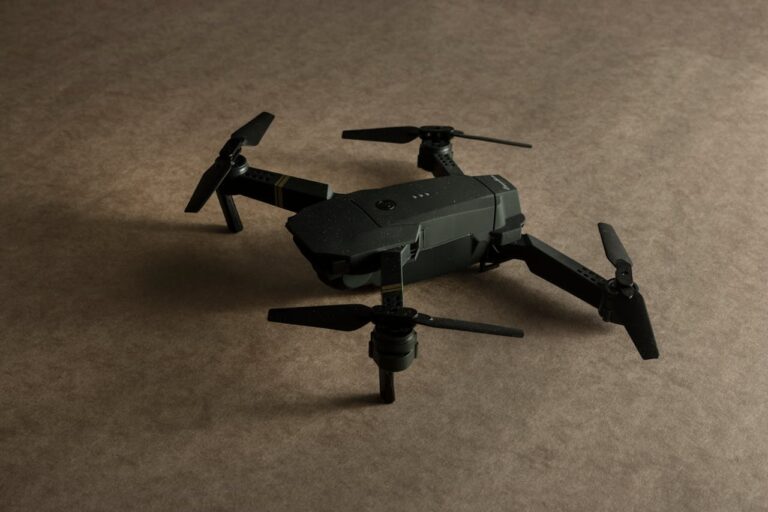
Rocket Lab Partners with Bollinger Shipyards to Retrofit “Return On Investment” Vessel for Neutron Rocket Landings
Rocket Lab USA, Inc. (Nasdaq: RKLB), a leading aerospace company and global provider of launch services and advanced space systems, has entered into a significant partnership with Bollinger Shipyards, the largest privately-owned new construction and repair shipbuilder in the United States. This collaboration will support the modification and transformation of Rocket Lab’s 400-foot landing vessel, Return On Investment, which is critical to enabling sea-based landings and recoveries of the company’s next-generation Neutron reusable rocket.
The strategic alliance marks a pivotal step in Rocket Lab’s evolution from a small satellite launcher into a major player in the medium-lift and reusable launch market. It also underscores Rocket Lab’s commitment to American-based infrastructure and manufacturing partnerships as it expands operations across the United States.
Major Retrofit Begins on “Return On Investment” at Louisiana Shipyard
The retrofitting and integration work for Return On Investment has officially commenced and is being carried out at Bollinger’s state-of-the-art shipbuilding facilities in Amelia, Louisiana. Delivery of the fully outfitted vessel to Rocket Lab is expected in early 2026. The scope of work includes comprehensive modifications that will transform the vessel into a specialized maritime recovery platform capable of supporting frequent and high-precision Neutron rocket landings at sea.
The platform’s design includes several advanced engineering features tailored to the rigors of rocket recovery operations. Key among these are autonomous ground support equipment (GSE) to aid in post-landing operations, robust blast shielding to protect sensitive onboard systems from the extreme heat and force of rocket touchdowns, and station-keeping thrusters that enable the platform to maintain stable positioning in open waters during recovery missions.
These capabilities are essential as Rocket Lab prepares for Neutron’s operational debut and the increased launch cadence anticipated in the coming years.
Neutron Rocket: The Backbone of Rocket Lab’s Reusable Future
Neutron is Rocket Lab’s next-generation, medium-lift reusable launch vehicle designed to meet the growing demand for cost-effective and reliable space access. Targeting the booming markets for large satellite deployment, multi-payload constellation missions, and defense and national security applications, Neutron will complement Rocket Lab’s existing Electron rocket by enabling missions with larger payloads and higher mission assurance requirements.
A central component of Neutron’s value proposition is reusability. The rocket is engineered to return to Earth after launch and land vertically on the Return On Investment platform, be quickly refurbished, and launched again with minimal downtime. This approach mirrors the successful reusability model pioneered by companies like SpaceX but with Rocket Lab’s distinct innovations in design, materials, and operational flexibility.
Rocket Lab expects to scale Neutron’s launch capacity aggressively after its entry into service, with the Return On Investment vessel playing a vital role in enabling a sustainable, fast-turnaround reusability model. With the ability to recover rockets at sea, the company is not restricted by land-based recovery limitations, allowing for a broader range of launch trajectories and customer mission profiles.
Gulf Coast Expansion Builds on Rocket Lab’s U.S. Presence
The decision to retrofit and operate the Return On Investment platform out of Louisiana aligns with Rocket Lab’s broader U.S. expansion strategy. The company has already established a strong East Coast footprint with its Neutron launch and manufacturing site at NASA’s Wallops Flight Facility in Virginia. With the recovery vessel operating out of ports along the U.S. Gulf and East Coasts, Rocket Lab is building a vertically integrated launch infrastructure capable of supporting high-frequency missions and rapid turnaround times.

Once operational, the ship will play a crucial role in transporting returned Neutron first-stage boosters from landing zones in the Atlantic Ocean back to Wallops Island for refurbishment and reflight. This maritime logistics chain is essential to maintaining launch velocity and achieving the economic efficiencies promised by reusable systems.
Leadership Perspectives on the Strategic Collaboration
Rocket Lab leadership emphasized the importance of the Bollinger partnership in executing their ambitious plans for Neutron and reusable rocketry.
“Neutron’s ability to return to Earth on the Return On Investment platform and launch again and again will be foundational to its success,” said Shaun D’Mello, Rocket Lab’s Vice President for the Neutron program. “With Bollinger’s extensive experience in marine engineering and shipbuilding, they are the ideal partner to deliver this critical infrastructure project. We’re looking forward to working closely with them to establish the infrastructure necessary to support the next generation of American aerospace technology, while also modernizing shipyard capabilities in Louisiana to align with the needs of the evolving space economy.”
On the shipbuilding side, Ben Bordelon, President and CEO of Bollinger Shipyards, expressed pride in being selected to participate in a project that blends cutting-edge aerospace with advanced marine engineering.
“Bollinger is proud to partner with Rocket Lab on a project that highlights both the ingenuity and innovation of American shipbuilding and the future of space flight,” said Bordelon. “For decades, Bollinger has been at the forefront of building some of the most advanced vessels in the world. We’re honored to apply our deep knowledge and experience in fabrication and marine engineering to this transformative program that is helping shape the future of reusable space transportation.”
Bollinger Shipyards: A Trusted Name in American Shipbuilding
Founded in 1946, Bollinger Shipyards has a long legacy of designing and building high-performance vessels for the U.S. Navy, Coast Guard, and commercial clients. With 14 shipyards spread across Louisiana and Mississippi, the company is a leader in constructing and servicing advanced marine platforms, including fast response cutters, patrol boats, tugboats, and offshore support vessels.
Bollinger’s selection by Rocket Lab is a strong endorsement of the shipbuilder’s ability to support technologically demanding, aerospace-adjacent projects, reflecting a broader trend of cross-industry innovation between maritime engineering and the space sector.
This collaboration also signals growing interest in regional economic development, as the project is expected to generate high-skill job opportunities and stimulate local investment in advanced manufacturing and infrastructure.
As Rocket Lab prepares for Neutron’s debut in the coming year, the Return On Investment vessel will serve as a cornerstone of the company’s reusable launch infrastructure. The ability to recover and reuse launch hardware at sea is critical to reducing costs, increasing mission flexibility, and ensuring rapid responsiveness for commercial and government customers alike.
By investing in ocean-based recovery and collaborating with a legacy American shipbuilder, Rocket Lab is reinforcing its commitment to industrial innovation, operational agility, and scalable access to space.
With the delivery of the completed vessel scheduled for early 2026, the aerospace world will be watching closely as Rocket Lab takes this next giant leap toward a more sustainable and economically viable future in space launch.
About ‘Return On Investment’
‘Return On Investment’ is Rocket Lab’s sea-based landing platform for Neutron, the Company’s new reusable 141 ft (43 m) medium-lift rocket. Under construction at Bollinger Shipyards in Amelia, Louisiana, the landing platform is built upon a modified barge the ‘Oceanus’, is Jones Act compliant, and will be operated out of the U.S. East Coast. ‘Return On Investment’ will be equipped with propulsion systems to maintain the platform’s target position, thermal protection systems to conserve electrical and other support equipment installed on the deck, and Rocket Lab-developed technology for securing and processing Neutron. ‘Return On Investment is expected to enter service in 2026.
About Neutron
Rocket Lab’s new reusable rocket Neutron is a next-generation challenger to the medium-lift launch industry. Neutron’s advanced architecture includes carbon composite for all of the rocket’s major structures, and an integrated system that brings Neutron’s Stage 1 and payload fairings back to Earth as a single stage – fully optimized for reuse and launch frequency to deliver cost-effective, reliable, and responsive launch for commercial and government missions.
Capable of delivering a 13-ton payload to space before returning to Earth, Neutron is powered by Rocket Lab’s newly-developed Archimedes engine, an oxidizer-rich staged combustion cycle engine capable of a combined 1,450,000 pounds of thrust across nine engines on Neutron’s reusable Stage 1. Neutron will fly from Rocket Lab Launch Complex 3 (LC-3) located at Wallops Island, Virginia from the Mid-Atlantic Regional Spaceport (MARS).
About Rocket Lab
Founded in 2006, Rocket Lab is an end-to-end space company with an established track record of mission success. We deliver reliable launch services, satellite manufacture, spacecraft components, and on-orbit management solutions that make it faster, easier, and more affordable to access space. Headquartered in Long Beach, California, Rocket Lab designs and manufactures the Electron small orbital rocket, the HASTE launch vehicle for hypersonic technology tests, a family of flight-proven spacecraft, and its new medium-lift launch vehicle Neutron.
Since its first orbital launch in January 2018, Electron has become the second most frequently launched U.S. rocket annually and has delivered more than 200 satellites to orbit for private and public sector organizations, enabling operations in national security, scientific research, space debris mitigation, Earth observation, climate monitoring, and communications. Rocket Lab spacecraft have been selected to support NASA missions to the Moon and Mars, as well as the first private mission to Venus. Rocket Lab has three launch pads at two launch sites, including two launch pads at its private orbital launch complex in New Zealand and third launch pad in Virginia. To learn more, visit www.rocketlabcorp.com




